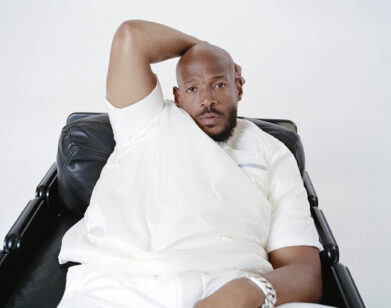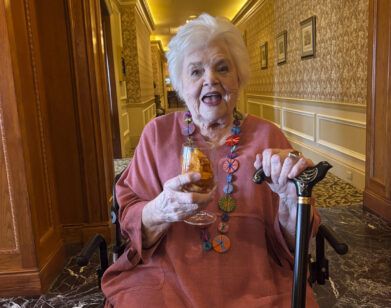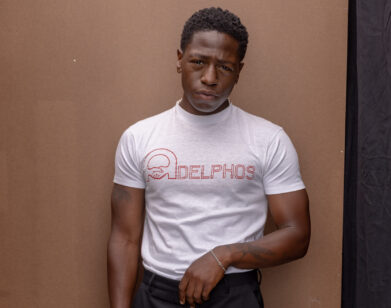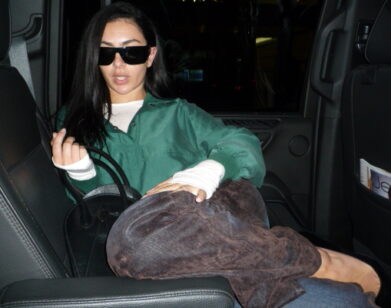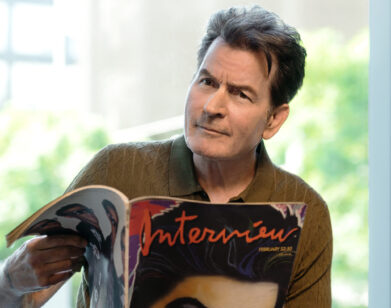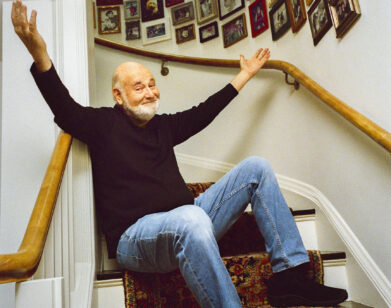New Again: Bill Murray
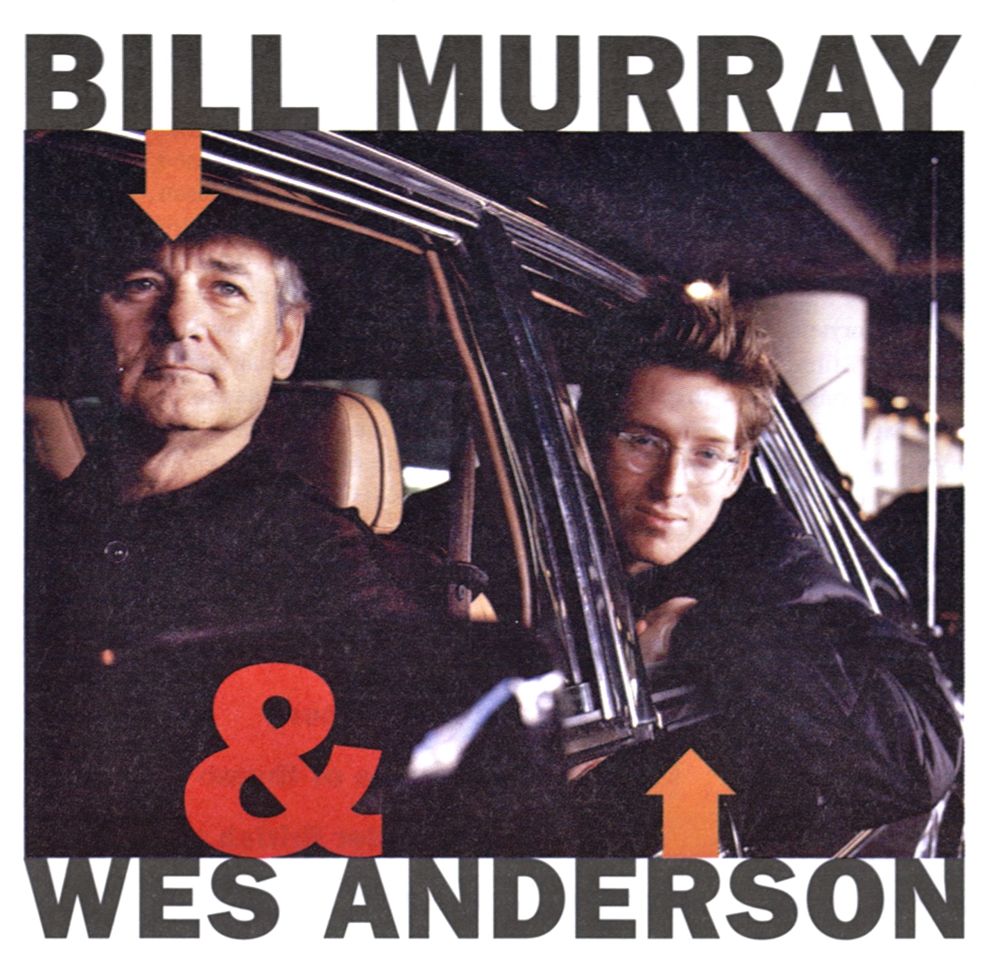
When Bill Murray was interviewed by Wes Anderson for us in 1999, the actor told the director that Rushmore was the first film he’d done since 1993’s Groundhog Day that was “completely whole.” With composer Tim Minchin‘s decision to turn Groundhog Day into a musical, the film that Murray described as “exceptionally well-written” is returning to the public consciousness. Fortunately, Minchin knows what he is doing: his musical adaptation of Roal Dahl’s Matilda won four Tony Awards, and both Matilda director Matthew Warchus and Groundhog day’s original screenwriter Danny Rudin are both involved. (If only they were writing the Heathers musical as well.) Something tells us that Bill Murray won’t be reprising his role, but maybe his Rushmore co-star Jason Schwartzman could take over?
Billy Murray
By Wes Anderson
Not since the mid-to-late ’80s—the days of movies like Blue Velvet, True Stories, Raising Arizona, and Something Wild—as there been a slice of post-modern Americana as funny, thoughtful, and downright weird as the unmissable Rushmore. The film tells the take of 15-year-old nerd entrepreneur Max (played by astounding newcomer Jason Schwartzman), who gets tycoon Mr. Blume (Bill Murray) to sponsor his madcap schemes so he can impress the schoolmarm he desires (Olivia Williams), only for the melancholy millionaire to fall for her himself.
Rushmore is brought to us by the inspired Bottle Rocket team of director Wes Anderson and co-writer Owen Wilson (whose brother Luke Wilson plays the teacher’s pet abused by the amorous tyro). Interview asked Murray and Anderson to talk about the flick—we hope Schwartzman, gifted 18-year-old nephew of Francis Ford Coppola, wasn’t eavesdropping.
WES ANDERSON: Bill, why did you want to get involved with Rushmore?
BILL MURRAY: I got the script. It said it was written by the guys who made Bottle Rocket. That meant nothing to me because I didn’t know anything about Bottle Rocket. People have tried to slip me a tape of it.
ANDERSON: Let me interject and say that I have sent you four tapes of Bottle Rocket.
MURRAY: Yeah. I’ve got them all over my house like people have catalogues from Pottery Barn lying around. I still haven’t seen it.
ANDERSON: I think that’s good because you said what appealed to you was the purity of Rushmore. Maybe not seeing Bottle Rocket helped you stay pure.
MURRAY: Anything that helps me stay pure I just grab onto. [Anderson laughs] When I read Rushmore, I figured the writing was so specific that whoever wrote it knew exactly what they were going to shoot. I never have a problem with guys who make a movie that misses as long as they make the movie they want to make. That’s usually the hard part. So why did you ask me to be in the film?
ANDERSON: Well, we’d wanted you to be in this other movie we did that you haven’t seen [Murray laughs], but at the time you were driving a trailer across country or something, so we gave up. We’d always been fans of yours. I was a major Ghostbusters fan, for example.
MURRAY: Do you have any of the suits or anything?
ANDERSON: I think I was Venkman for Halloween one year.
MURRAY: Do you have any pictures of that?
ANDERSON: I probably still have the suit.
MURRAY: And you probably still fit in it.
ANDERSON: That’s possible. So, anyway, when we were writing Rushmore you were the person we had in mind for Mr. Blume. We didn’t know you, so we modeled it on the kind of guy we thought you’d be great for.
MURRAY: Oh, okay.
ANDERSON: One of the things Owen and I were most interested in was the way Blume becomes friends with the kid, Max. He’s only 15, but you guys are sort of equals. How did you respond to that?
MURRAY: It’s like one guy’s glass is half-full and the other guy’s glass is half-empty. They’re at the same spot in life, except one of them is receding and one is rising. And if the guy who’s receding can somehow hook on to the guy who’s growing, maybe he can delay his erosion. You know, in life you meet the same people on the way down as you do on the way up. You see that a lot in Hollywood, although I never met a lot of the people I’m meeting now, so I must be going up. At the same time, I don’t know if I’m going down—I must be.
ANDERSON: Word on the street is you’re going up.
MURRAY: Yeah, maybe. Anyway, there was something about Blume wanting to befriend a young guy like Max. It’s like when an old movie star grabs onto a young movie star, except I made the mistake of picking a guy who’d never worked in a movie before. You know… Schwartzman.
ANDERSON: What was your relationship with Jason when you started the movie?
MURRAY: When I came down to Texas, Seymour Cassel [who plays Max’s dad] was talking to Schwartzman about hookers. I thought, “Whoa, this guy is really ready to make the leap to the big time — I’m glad Seymour is doing all the work because then I don’t have to.” So then Schwartzman and I rehearsed our lines up in your room and he was terrible, just terrible. And I got very depressed and immediately afterwards went straight to the bar. [Anderson laughs] And I discovered that people drinking in bars in Texas hotels have to be avoided because they act like they’re Texan even if they’re not. It’s like people dressing up for cowboy night at a New York disco—diamonds and denim. I got close to fisticuffs because I kept trying to ignore them.
ANDERSON: And you were in a bad mood already.
MURRAY: Yeah, because I knew I had to work with this guy who didn’t have a clue. And the more we rehearsed those scenes, the stranger his delivery got and the more attitude he had. And I though, “God, I’m really in trouble here.” So I was very trepidatious on the first day of shooting. I tried to be as helpful as I could in all respects, like I was Mr. Fix It. And I tried to go with everything that was going on—all the other problems—so he could see I wasn’t completely focused on him. That was good because I think it left him to figure out things a little bit. I think he was nervous the first night.
ANDERSON: Uh, yeah. You were scaring the shit out of him, Bill.
MURRAY: Yeah.
ANDERSON: Then we went to Ouisie’s…
MURRAY: Yeah. I said to him, “I want to take you out for a chicken-fried steak.” But he didn’t know what a chicken-fried steak was. And I went, “Kid, you know about hookers, but you don’t know about chicken-fried steak?” That relaxed him and put him on a higher plane. He was going to become somebody else, you know. He was going to be made a man that night. And, of course, he got better and better every day on the movie after that, to the point where right now he’s just unbearable. [Anderson laughs] He’s an arrogant superstar and God help his agents or the next director who works with him because he’s certifiably crazy and dangerous. And we’ll be able to read about his downfall in People magazine and then his comeback. It’s all going to come real fast with him.
ANDERSON: How do you think Blume compares with other roles you’ve done recently?
MURRAY: I’ve liked most of the characters I’ve played, but writing-wise they weren’t all finished. I think Rushmore is the first movie I’ve done in a while that’s completely whole. Groundhog Day was another that was exceptionally well-written. With Rushmore, it was great to be able to serve the story without waving a flag over my head, which you often have to do when you’re the lead and have to carry the film. So I enjoyed playing Blume because I really believe an actor’s job is to serve.
THIS ARTICLE INTIALLY APPEARED IN THE FEBRUARY 2000 ISSUE OF INTERVIEW.
New Again runs every Wednesday. For more, click here.

